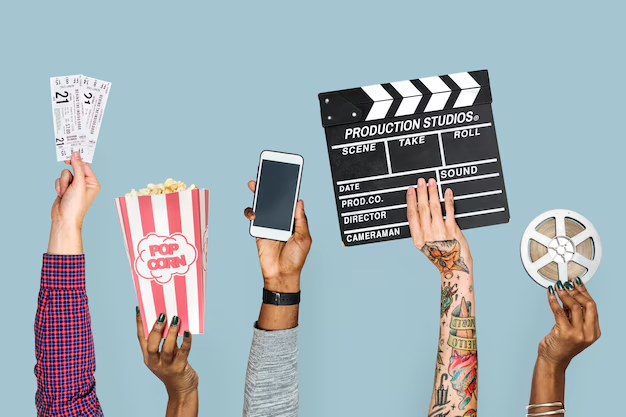Global Pop Culture Phenomena: How Music, Movies, and Social Media Shape Our Collective Identity
In today’s interconnected world, the boundaries that once separated cultures, nations, and identities have dramatically blurred. Pop culture – encompassing music, movies, and social media – has become the universal language that unites us all, shaping and reshaping our collective identity. It’s no longer just a source of entertainment; it has evolved into a powerful tool for expressing individual and group identities, creating shared experiences, and influencing societal norms. But how do these three key elements—music, movies, and social media—interact with and shape our global consciousness?
The Power of Music in Shaping Identity
Music has long been a vital component of cultural expression. Over the years, it has acted as a bridge between different communities, creating shared spaces for dialogue and connection. Today, pop music is arguably one of the most prominent forms of global culture. From Korean K-pop groups like BTS to Latin superstars like Bad Bunny, music from diverse genres has found its way into every corner of the world. What makes this possible is the universality of music itself, which transcends language barriers and speaks directly to the emotional and cultural experiences of listeners.
Artists like Taylor Swift, Beyoncé, and Ed Sheeran have created global communities through their music. Their lyrics often reflect personal struggles, love, heartbreak, and social justice, themes that resonate with millions of fans. Music not only provides a soundtrack to our lives, but it also shapes the way we see the world, ourselves, and our place within it. The music industry, aided by streaming platforms like Spotify and Apple Music, ensures that our cultural exposure is no longer limited by geographic location.
Movies: Reflecting and Reinforcing Global Culture
Movies have long been a way for individuals to experience stories, explore new ideas, and better understand different cultures. However, the rise of blockbuster films and the proliferation of streaming services have made movies an even more integral part of our shared global identity. Films like Avengers: Endgame, Black Panther, Parasite, and The Lion King not only captivate us with their entertainment value but also offer a deep insight into the complexities of culture, race, and identity.
Hollywood has long been a powerhouse in defining and shaping global pop culture, but in recent years, films from other regions such as South Korea, India, and Mexico have made a significant impact on global audiences. Parasite, for example, became the first non-English language film to win the Academy Award for Best Picture, signaling a shift in global cinema and the recognition of diverse stories. Similarly, Bollywood’s influence extends far beyond India, with its films reaching audiences in countries across Asia, Africa, and the Middle East.
As movies reflect societal norms and values, they also play an essential role in challenging and reshaping these norms. Films that address important topics such as race, gender equality, and environmentalism push the boundaries of what’s considered mainstream, allowing us to engage in global conversations that transcend borders.
Social Media: The Digital Stage for Global Interaction
In the 21st century, social media has become one of the most powerful tools in shaping global pop culture. Platforms like Instagram, TikTok, Twitter, and YouTube allow individuals to share their thoughts, ideas, and content on a global scale. Influencers, content creators, and activists can build massive audiences that transcend geographical locations, creating a new form of celebrity and social influence.
Social media gives us instant access to viral trends, memes, challenges, and news events, allowing users to participate in cultural moments in real time. The ability for content to go viral on a platform like TikTok has allowed for niche subcultures to become mainstream, influencing everything from fashion to politics. In this digital age, social media has democratized culture, giving everyone, not just traditional celebrities, the ability to contribute to the shaping of popular trends.
For instance, movements like Black Lives Matter gained international momentum through social media platforms, illustrating how these digital spaces can unite people for a common cause. Similarly, challenges like the Ice Bucket Challenge or #MeToo have sparked global conversations and actions that have reverberated throughout society, demonstrating the immense power of social media in shaping both pop culture and social change.
The Intersection of Music, Movies, and Social Media
In the modern world, the boundaries between music, movies, and social media have become increasingly intertwined. Music artists use social media to promote their work, while movies use social platforms to generate buzz and build fan bases before their releases. The ability of pop culture to spread virally is facilitated by platforms that combine these elements. For example, artists like Billie Eilish or Drake use Instagram to connect with fans, while movie stars and directors leverage Twitter to share behind-the-scenes content and engage in global conversations.
This blending of music, movies, and social media has created a more participatory culture, where fans are not just consumers but active contributors to the cultural landscape. The rise of fan communities, hashtags, and memes means that people are constantly shaping and reshaping pop culture, creating a continuous cycle of influence and reinvention.
FAQs
- How does music influence global pop culture? Music connects people across cultures and has the power to transcend language barriers, helping shape shared experiences and collective identity.
- What role do movies play in shaping our collective identity? Movies reflect societal norms and values, providing a lens through which people can understand and engage with different cultures, issues, and ideologies.
- How has social media changed global pop culture? Social media has democratized cultural creation, allowing anyone to contribute to global trends and discussions, thus amplifying diverse voices and ideas.
- Can music, movies, and social media work together in shaping culture? Yes, these three elements often intersect, with music artists promoting their work on social media and films using these platforms to engage audiences and create buzz.
- How does social media influence music and movie trends? Social media accelerates the spread of trends, whether through viral challenges, memes, or fan-driven content, which often influences the mainstream success of songs and movies.
- What impact do global pop culture phenomena have on society? They shape our values, perceptions, and social norms, creating shared experiences that define generations and shape the way we interact with the world.
- Can global pop culture drive social change? Yes, movements such as Black Lives Matter and #MeToo have been amplified by pop culture elements like music, movies, and social media, sparking global conversations about equality and justice.
Conclusion
The convergence of music, movies, and social media in global pop culture has created a dynamic landscape that continuously shapes our collective identity. Whether it’s through an infectious song, a thought-provoking film, or a viral trend on social media, pop culture is a reflection of who we are and who we aspire to be. In a world that is constantly evolving, these phenomena help unite people from different backgrounds and regions, fostering a sense of global interconnectedness.
Key Takeaway
Global pop culture is a powerful force that shapes our identities, connecting us across cultural, social, and political divides. By understanding how music, movies, and social media work together, we gain insight into the forces that influence the way we see the world and one another. The future of pop culture will continue to evolve as these elements intersect, creating new opportunities for shared experiences and meaningful cultural exchange.

